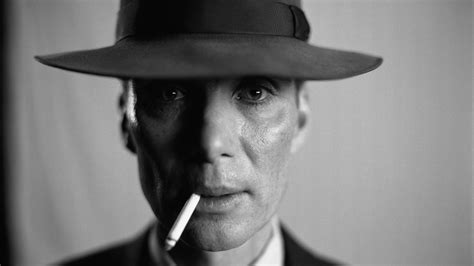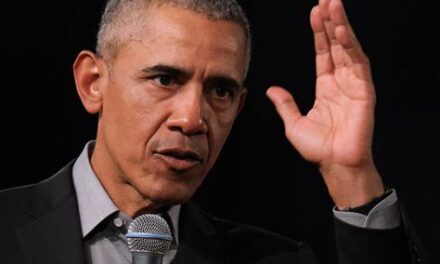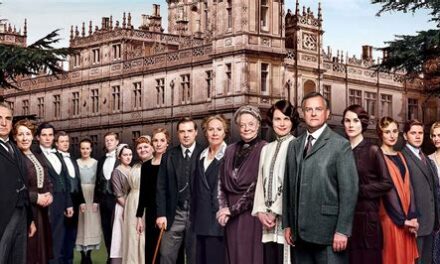As many will attest, Christopher Nolan’s Oppenheimer is long, three hours’ worth. Whether or not its length translates into worth is another matter. The events covered and the life of its subject, J. Robert Oppenheimer, are enough for two movies, as those who remember the 1980 miniseries Oppenheimer (over six hours) starring Sam Waterston will know. But the man, the events, and even Nolan’s undoubted talent as director and writer finally do not give audiences the film they should have had.
Biopics were once a staple of film culture. From early talkies such as Disraeli and Cardinal Richelieu (both with George Arliss) to Lawrence of Arabia and Patton, directors have managed to mesmerize the public with the lives of famous men, sometimes in strict fidelity to history and sometimes not. One can hardly blame Nolan for succumbing to the pull of the genre; besides, Dunkirk (2017) showed he could tackle an historical event in a novel manner, chiefly by plotting the story in parallel time sequences.
In Oppenheimer, Nolan uses a similar device of juggling the time sequence of the scientist’s life in snippets long and short: his time at Cambridge where, shockingly, he tried to poison his tutor; a lecture he delivered in Holland in Dutch—after learning the language in weeks; his move to Berkeley; socializing and politicizing with friends, mostly leftists, many communists; his caustic relationship with Admiral Lewis Strauss (Robert Downey, Jr.) of the Atomic Energy Commission; his meeting with President Truman (Gary Oldman); the work on the Manhattan Project at Los Alamos; his affair with the ardent Marxist Jean Tatlock (Florence Pugh); his rocky marriage to Kitty (Emily Blunt); the hearing concerning his security clearance; and on and on.
So many events and so many characters would be a lot to swallow, even unfolding in sequence as they did in the old miniseries. Because they don’t, many viewers may find Nolan’s Oppenheimer confusing, unfocused, and perhaps a bit uninspiring. I will say that thanks to my having seen Waterston’s Oppie twice over the years and having read about the scientist’s leftist activity, I found I could follow the action without too much trouble. But that’s no guarantee everyone will find it easy.
More damning is the political drift of the film. Oppenheimer was a committed leftist, a New Dealer, as he calls himself, which was more or less true, although John Earl Haynes and Harvey Klehr, in their book Venona: Decoding Soviet Espionage in America, prefer to label him a “Popular Front liberal and an ally of the Communist party from the late 1930s until early 1942.” Like many New Dealers, he adopted a rather benign view of the Soviet Union, tacking ever so slightly to the right a full three years after the Ribbentrop-Molotov non-aggression pact. Yet somehow Nolan’s version of events manages to soften though not deny the physicist’s leftism.
The chief villain of Oppenheimer is Downey’s Strauss who gets the full tar-and-feathers treatment. Nolan’s script presents him as a vindictive, egomaniac whose main goal is to get even with Oppenheimer for a series of personal slights: the first, all in Strauss’ imagination, during Oppenheimer’s meeting with Einstein, and the second, hardly imaginary, when Oppenheimer scoffed publicly at Strauss’ credibility in the field of physics. I’ve been unable to discover whether the Einstein episode happened. As for the public insult, although it’s well-documented and reflects badly on Oppenheimer, Nolan’s telling emphasizes Strauss’ resentment.
As his relationship with Oppenheimer sours, Strauss’ attempts to undermine the physicist’s governmental status, encouraging the F.B.I. to watch Oppenheimer as a possible security risk and later facilitating the notorious hearing, which ends with Oppenheimer losing his security clearance.
Behind all of this is the political divide between the two men, largely an unbridgeable gap. Oppenheimer felt that sharing atomic secrets with the Soviets was key to a safer world; Strauss adamantly opposed him. But one wonders: If Nazi Germany had negotiated a peace and Hitler survived, would Oppie have lobbied to share secrets with them to avoid nuclear catastrophe? In reality, we were at war with them, but the chief issue was moral. I have to say that where Strauss correctly perceived both Hitler and Stalin as monsters never to be trusted with weapons of such magnitude, Oppenheimer did not.
Regardless of Strauss’ motives, he was right about Oppenheimer’s curious view of the Soviets and the danger to national security it posed. Eventually, Edward Teller and General Leslie Groves agreed. Yet it is Nolan’s Oppenheimer who emerges the sainted figure over Strauss, a grudging, little man. (Note: the scientists who sink Strauss’ nomination for Secretary of Commerce don’t appear small or vindictive, not in Nolan’s telling.)
The ending of the film with a surreal missile-filled sky, a prologue, I imagine, to Armageddon, is not surprising. Is this a plea for disarmament? If so, it’s more reminiscent of the attitude throughout Europe in the thirties that led to World War II than Nolan might wish.
Cillian Murphy is creditable as Oppenheimer although no more so than Waterston was in the miniseries. Emily Blunt as wife Kitty, Matt Damon as General Groves, and Bennie Safdie as Teller all give fine performances; the cameos from Kenneth Branagh (Niels Bohr) and Oldman are small bonuses.
But Oppenheimer, on the balance, leaves (or should leave) a bad taste in one’s mouth for its myopic, tendentious picture of the times. If Hitler was evil not so much for his bellicosity as for his monstrous villainy, then Stalin should have been recognized as a man of the same cloth. Among so much of the American intelligentsia and political class, that “moral equivalence” never materialized. Was J. Robert Oppenheimer ignorant or naïve? Or was he someone, to borrow from Whittaker Chambers, who when he looked at the Soviets couldn’t tell the difference between them and himself? Either reading of Oppenheimer’s character will go a long way in explaining why he suffered the fate he did and why it was justified.














